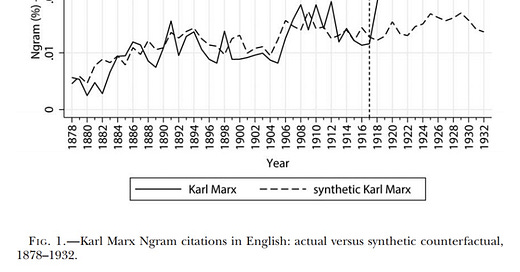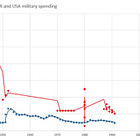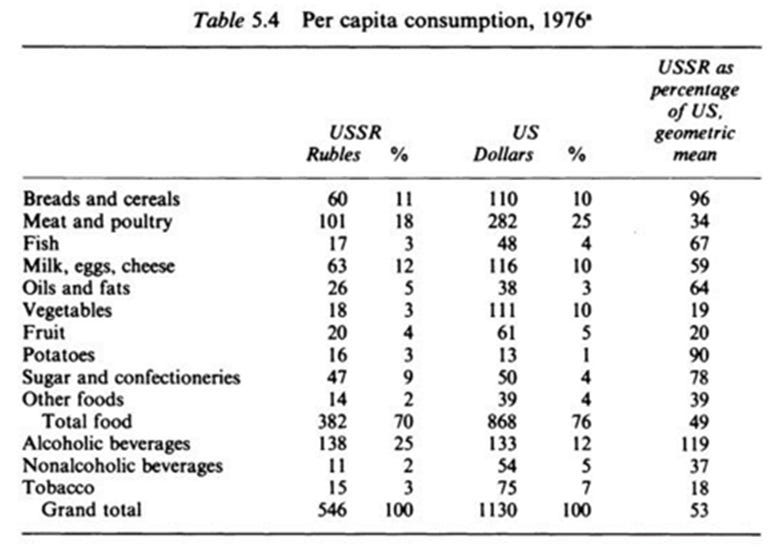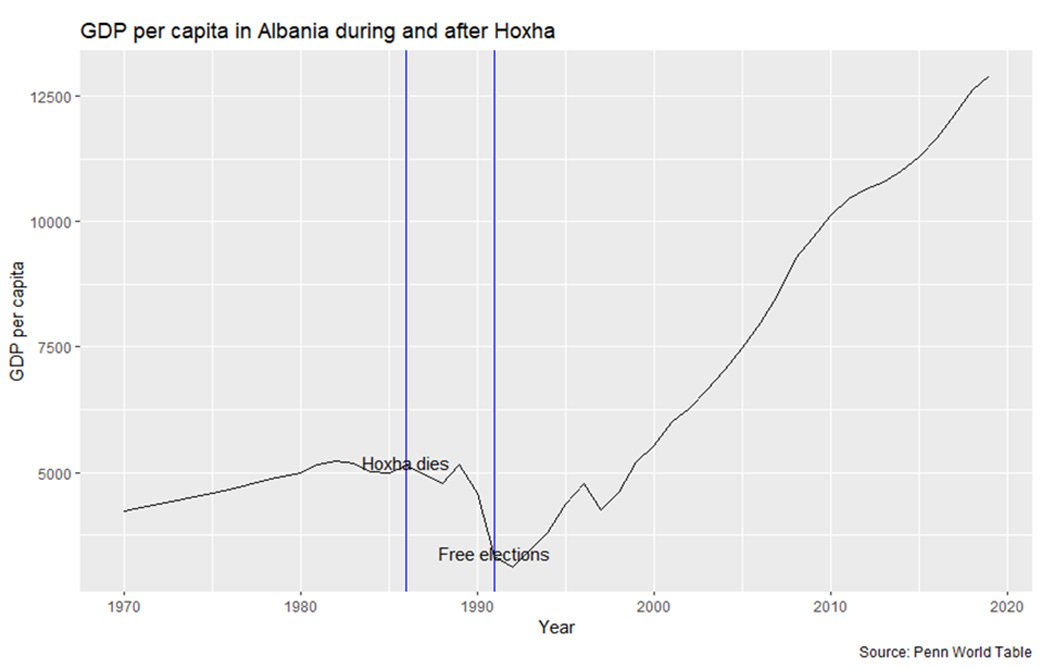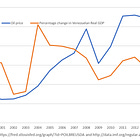Marx hadn't been famous if Lenin's coup d'etat had failed
Karl Marx was a lousy economist and enjoyed no reputation among other economists during his lifetime.
This is the English version of my letter to Sydöstran which was published 5 November. It was also published in Kristianstadsbladet and Norra Skåne 9 November, and in Sörmlandsbygden 11 november. At the end of this post, below the letter, I provide a link to older posts about how communism made lives miserable in the countries whose dictators tried to implement Marx’ ideas.
Already during his lifetime, developments proved him wrong. Real wages increased and so did the share of labour in GDP. The mass unemployment that he believed would result from increased productivity did not occur. Contrary to his predictions, workers' incomes increased and their living standards improved radically.
If Lenin hadn’t made the coup d’etat, Marx wouldn’t have become famous.
Source: Phillip W. Magness.
Marx was dismissed during his lifetime by other economists. His writings were read only by a few other socialist thinkers. Despite that, he has had an enormous influence. In the countries where his ideas have been adopted, the populations have had to experience poverty, famine, mass murder and environmental destruction.
Anyone who, like me, has wondered about the reason for Marx's fame now has an explanation. It was after Lenin's palace coup in 1917 that Marx was placed on a pedestal, his teachings were elevated to state ideology and his works were distributed in multi-million editions.
In an article in the Journal of Political Economy, the economists Magness and Makovi have presented the results of a bibliometric analysis of how frequently Marx has been quoted or referred to by other authors. After controlling for other factors, they clearly find that it was after the October coup that Marx began to be quoted and referenced.
The results were followed up later in an article at the Institute of Economic Affairs. In that article, a counterfactual analysis is also reported which shows that if Lenin had not carried out the palace coup in October 1917, the number of citations and references would have remained at previously low levels.
Life under communism was shorter, poorer, and dirtier than in the West.
The heading above is not from my letter to Sydöstran. Is the title a post that I wrote five years ago.
which can be summarised as:
Communist leaders promised people in their countries to build socialist paradises. But life in the Soviet Union and its satellite states were miserable. People were poorer and did not live as long as people in the west. People in communist countries died earlier not only because of the mass executions, slave labour in- and outside of prison camps and regime-made famines but also because of environmental disasters causing diseases among the populations.
Communist North Korea and the market economy South Korea at night.
Source: NASA Earth observatory. The Koreas at night. 2014-01-30. https://earthobservatory.nasa.gov/images/83182/the-koreas-at-night
Marx’ ideas caused the collapse of the Soviet Union:
The inefficiency of the planning system caused the collapse. It was an economic system that was unable to produce enough grain and agricultural products to its own population. The economy was dependent on high oil prices to pay for the food imports and expenditures for the military, and subsidies for energy, food and housing for its citizens.
Per capita consumption in the Soviet Union and the USA 1976.
Source: Birman, I. (1989). Personal Consumption in the USSR and the USA. The table above and others quoted here: https://artir.wordpress.com/2016/05/11/the-soviet-union-food/
Marx’ ideas made Albania the poorest country in Europe
In Albania, the dictator Hoxha dumped Soviet after Chrustjev denounced Stalin. Hoxha kept on Stalin’s track which explans why the country was the poorest country in Europe. The country has not yet recovered from Marxist straight jacket.
he Stalinist Hoxha made Albania the poorest country in Europe. To paraphrase Marx and Engels, by overthrowing the communist regime, the Albanian proletarians had nothing to lose but their chains. Or perhaps a shotgun and a bunker, which were the average endowments of an Albanian household. When the communist era was over, the Albanian economy began to grow. And its growth rate has been higher than most other European countries.
GDP per capita in Albania 1970-2019.
Source: Penn Word Table. https://www.rug.nl/ggdc/productivity/pwt/?lang=en
Marx’ ideas turned Venezuela into a disaster area.
Unfortunately, Marx’ ideas have been implemented elsewhere, also in Latin America. Not only in Cuba which has been completely destroyed by communism but also in Venezuela where first Chavez and then Maduro managed to turn the country into a ruin.
The Venezuelan disaster is homemade and the result of socialist policies including expropriation, nationalisation, price controls, extensive regulations and incompetent use of the national oil company PDVSA for political purposes.
Annual rate of inflation in Venezuela (%).

